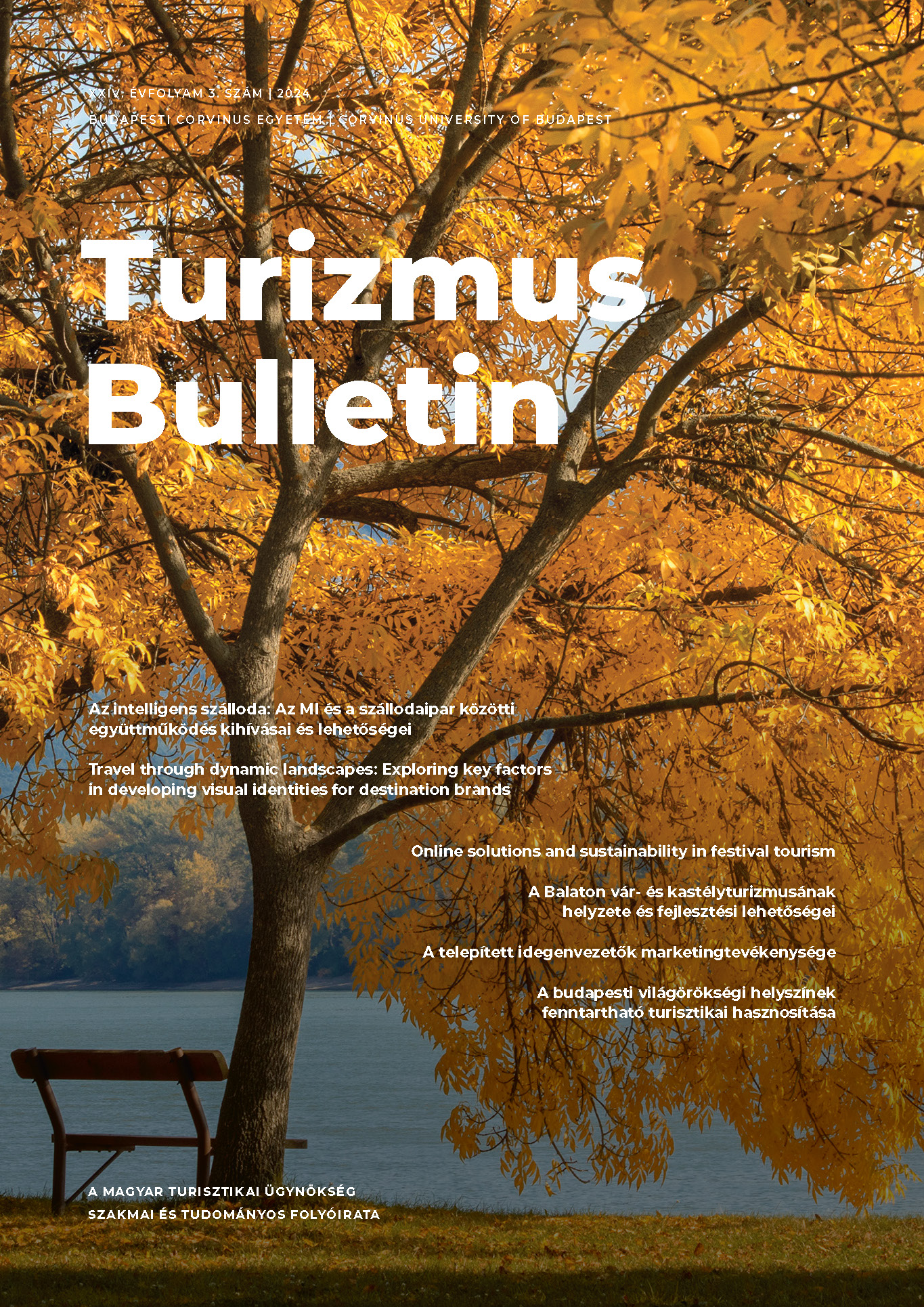Online solutions and sustainability in festival tourism
DOI:
https://doi.org/10.14267/TURBULL.2024v24n3.3Keywords:
Valley of Arts Festival, sustainability, data-driven online marketing, event industry knowledge sharing organisationAbstract
The article describes the activities of the Arts for Rural Development Foundation and the Hungarian Tourism Programme Foundation (MTPA) and details how they support online solutions for festival tourism and sustainability. By means of examples, the Arts for Rural Development Foundation shows how festivals can be a tool for rural development. The Valley of Arts Festival and the Kerekdomb Festival are outstanding examples of cultural events which have had a long-term impact on the region’s economy and community. The Foundation’s mission is to boost the economy of rural areas and to preserve and promote local cultural and built heritage. Involving volunteers and partners, excellent communication and sustainable methods, the events actively support rural development.
The MTPA focuses on the development and competitiveness of the domestic events sector by providing professional materials, conferences and international contacts. RaKÉTa supports the professional development of event organisers and the coordination of events through a scholarship programme and a unique calendar of events. The Valley of Arts Festival’s sustainability strategy reduces its environmental footprint through a range of environmentally friendly solutions, supporting public transport and making progress on waste management. The MTPA also focuses on training
event organisers and increasing their international visibility, helping the Hungarian events sector to grow and become more competitive.
References
CSAPODY, B. (2024): Online tartalomelemzés a helyi alapanyagok és gasztronómiai kultúra mentén: Gasztrofesztiválok weboldalainak vizsgálata. Turizmus Bulletin. 24(1). pp. 4–14. https://doi.org/10.14267/TURBULL.2024v24n1.1
HINEK M. (2021): Fesztivállátogatók véleményeinek számítógéppel támogatott tematikus model lezése – egy kísérlet eredményei. Turizmus Bulletin. 21(1). pp. 4–12. https://doi.org/10.14267/ TURBULL.2021v21n1.1
IRIMIÁS A. – JÁSZBERÉNYI M. – MICHALKÓ G. (2019): Az innováció szerepe a turisztikai termékfejlesztésben. In: Irimiás A. – Jászberényi M. – Michalkó G. (szerk.): A turisztikai termékek innovatív fejlesztése. Akadémiai Kiadó, Budapest. IVÁNYI T. (2020): Játékosítási megoldásokra való nyitottság zenei fesztiválokon. Turizmus Bulletin. 20(3). pp. 13–23. https://doi.org/10.14267/ TURBULL.2020v20n3.2
IVÁNYI T. (2022): Turisztikai információgyűjtés és élménymegosztás a közösségi média korában. Turizmus Bulletin. 22(2). pp. 46–54. https://doi. org/10.14267/TURBULL.2022v22n2.5
JÁSZBERÉNYI M. – BOROS K. – BÖHM P. (2022): Az erdélyi és magyarországi hagyományőrző fesztiválok gazdasági és társadalmi-kulturális hatásainak összehasonlítása. Turisztikai és Vidékfejlesztési Tanulmányok. 7(3). pp. 32–45. https://doi.org/10.15170/TVT.2022.07.03.03
JÁSZBERÉNYI M. (2016): A fesztiválok gazdasági hatása. In: Jászberényi M. – Zátori A. – Ásványi K. (szerk.): Fesztiválturizmus. Akadémiai Kiadó, Budapest.
KÖKÉNY L. – JÁSZBERÉNYI M. (2022): Fesztiválturizmus a hagyomány és a digitalizáció világában. In: Jászberényi M. – Boros K. – Miskolczi M. (szerk.): Vonzerőfejlesztés a kulturális és aktív turizmusban. Akadémiai Kiadó, Budapest.
KOVÁCS D. S. – BOROS K. (2023): A hazai zenei fesztiválokkal kapcsolatos attitűdvizsgálat a Z generáció tagjainak körében. Turizmus Bulletin. 23(4). pp. 24–31. https://doi.org/10.14267/ TURBULL.2023v23n4.3
Internet resources
SAFDIE, S. (2024): What are the Three Pillars of Sustainable Development? https://greenly. earth/en-us/blog/company-guide/3-pillars of-sustainable-development (August 8, 202

